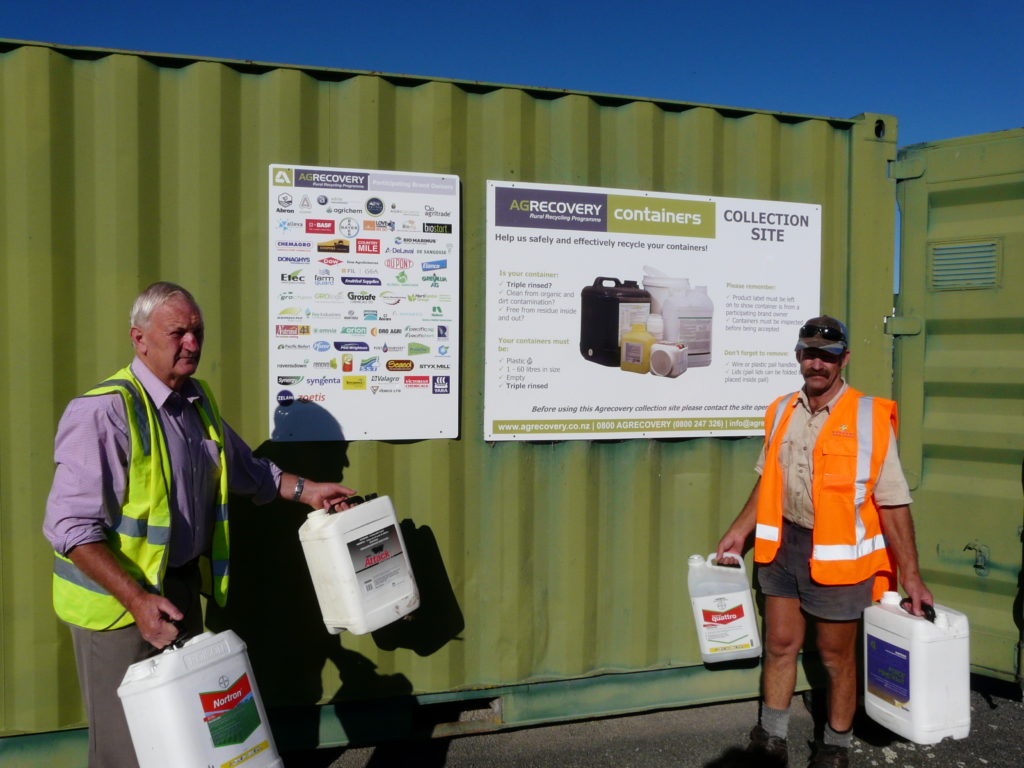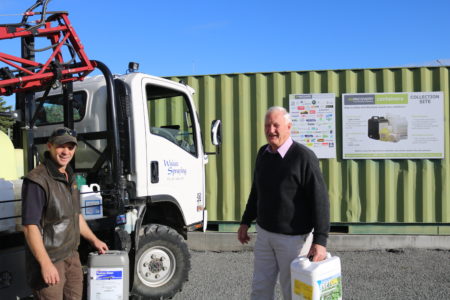Former Hurunui Council Mayor, Winton Dalley is a fantastic champion of agricultural recycling programmes and has been encouraging his community to support them for many years.
The council and Dalley’s environmental priorities extend beyond agrichemical containers and drums, and chemical recovery. They include soft plastics, twine, netting and pipes, and that’s just in the agricultural arena.
“Stewardship systems are the only way of dealing with waste,” Dalley says. “We need to be turning the clock back to reusing and recycling.” He says that buying new products made from containers means “you don’t need to pull more oil out of the ground to make them”.
“Stewardship programmes mean that the cost of responsible recovery is factored in with the purchase of the product.”
Responsibly dealing with waste has played a big part in his legacy over the past three decades. Dalley and Waste Minimisation Team Leader, Sally Cracknell, were instrumental in setting up a network of Agrecovery collection sites in the district. Dalley tries hard to encourage his community to support Agrecovery recycling. “I try hard, we don’t do enough.”
 “I’m trying to show a bit of leadership by teaming up with farmers to demonstrate how to use responsible recovery programmes.
“I’m trying to show a bit of leadership by teaming up with farmers to demonstrate how to use responsible recovery programmes.
“There’s always a borderline between overcooking it and undercooking it – too much and people become blasé.”
The council promotes recycling and recovery options via mail-out with their rates notices, at events, with the media, and by chatting with school children about composting and recycling. “It becomes a lifestyle. It’s got to be normal.”
Dalley is a semi-retired sheep and beef farmer – after farming for many decades. He spent his earlier years as an automotive engineer. “I’m an engineer by trade and a farmer by passion – I was a reluctant mayor”.
Even in the days when his neighbours were burning and burying, “it didn’t fit with me and my conscience”. He uses the recycling programmes himself and says that most local farmers are now recycling containers and agricultural plastics. “We just need to get it to 100 percent. It comes back to promoting and convincing people.”
“We have choices in life and we have to be challenged to make them.”
Even though he stepped down as mayor in late 2019, he is happy to go on promoting the programmes. There are still “people who don’t quite get recycling”. It’s a progressive process, “it’s not a revolution, it’s an evolution”.
“The stars are lining up in terms of regulation and Farm Environment Plans to do this stuff properly. Increasing annual tonnages prove to me that the message is getting out there.”
Read more stories in our annual report

